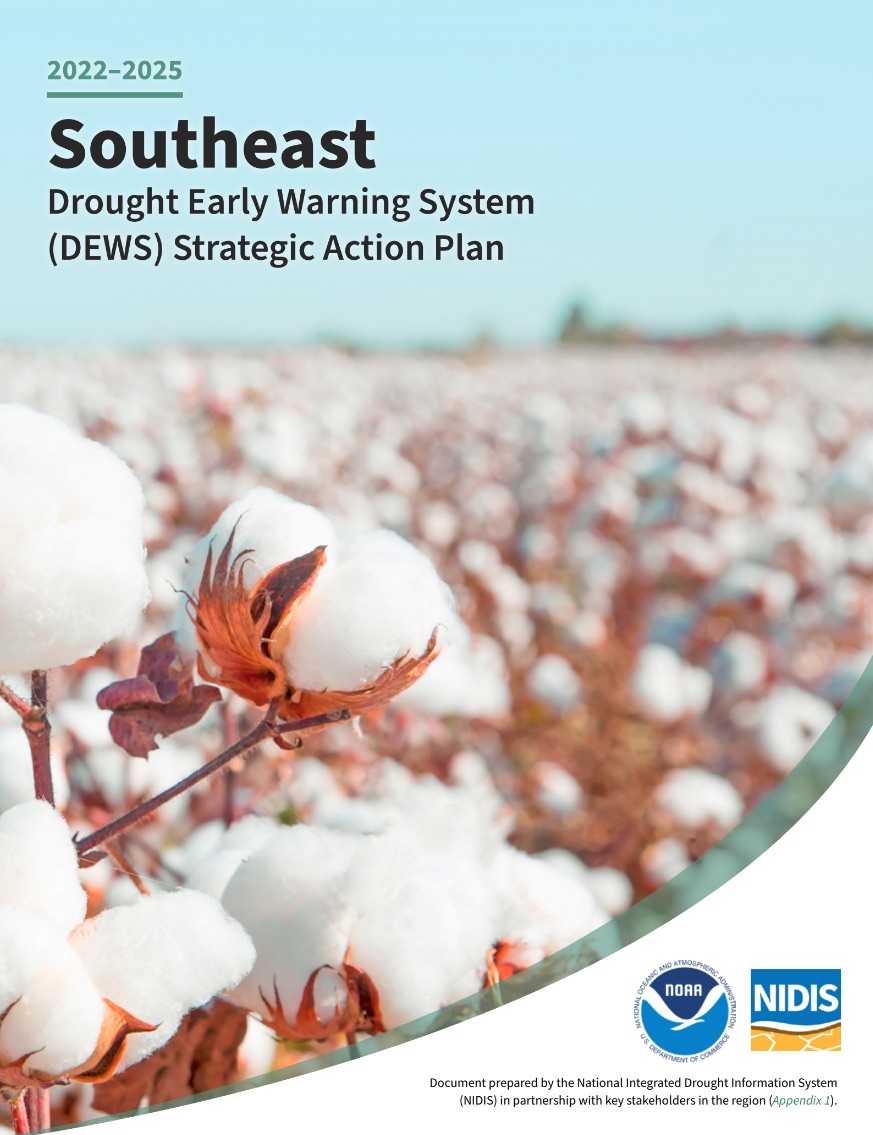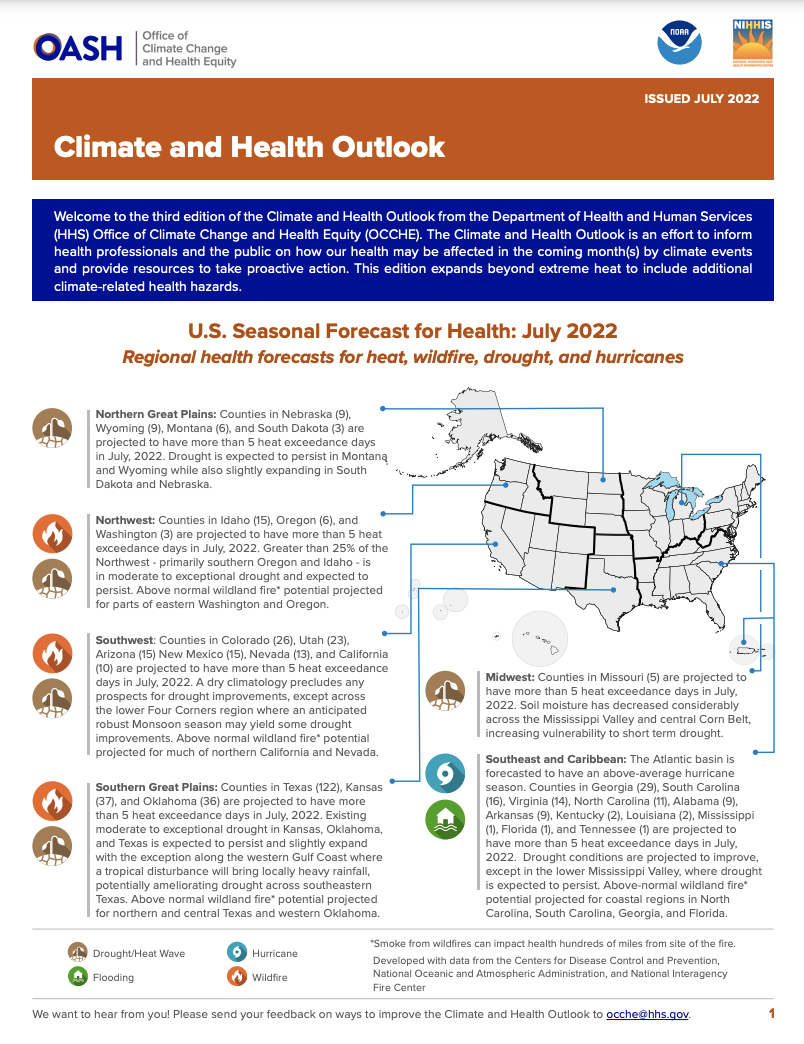The purpose of the 2022–2025 Southeast Drought Early Warning System (DEWS) Strategic Action Plan is to clearly articulate jointly identified information needs, set priorities for the DEWS network, and suggest measurable actions to improve drought early warning and preparedness for the region.
Compared to one year ago, the area in drought in the western U.S. shrank from 89% to 73%, while the area in Exceptional Drought (D4) dropped from 25% to 7%. Spring storms in the Pacific Northwest and Northern Rockies removed drought in parts of those regions. A robust summer monsoon has improved drought in parts of the Southwest, especially western New Mexico. The Southwest, California, and even parts of the Northwest have been stuck in a 20+ year megadrought, influenced by climate change.
Produced by the U.S. Department of Health and Human Services (HHS) Office of Climate Change and Health Equity (OCCHE), the Climate and Health Outlook is an effort to inform health professionals and the public on how our health may be affected in the coming month(s) by climate events and provide resources to take proactive action. An associated web page includes additional resources and information.
Quarterly Climate Impacts and Outlook for the Mid-Atlantic Region for March–May 2022. Dated June 2022.
Temperatures were generally within two degrees of normal for the spring season across the Mid-Atlantic. This is similar to what was observed for the preceding summer, fall, and winter seasons. The region generally experienced slightly wetter than normal conditions, with most locations experiencing between 100% and 125% of their normal spring precipitation amounts.
Quarterly Climate Impacts and Outlook for the Missouri River Basin for March–May 2022. Dated June 2022.
Temperatures were below normal for the majority of the Missouri River Basin. The greatest departures were in North Dakota and northwestern Wyoming. Precipitation was well above normal in North Dakota and near normal over the Rockies and eastern Kansas. Over southwestern South Dakota, western Kansas, and eastern Colorado, precipitation was well below normal this spring.
Quarterly Climate Impacts and Outlook for the Southern Region for March–May 2022. Dated June 2022.
Except for Arkansas, temperatures were well above normal during Spring 2022. It was a wetter than normal spring from central and eastern Oklahoma to east-central Mississippi, with especially wet conditions near the Ozarks. In contrast, dry weather gripped Texas.
Quarterly Climate Impacts and Outlook for the Great Lakes Region for March–May 2022. Dated June 2022.
Spring ranged from 2°C (4°F) below normal in the Superior basin to 2°C (4°F) above normal in the Erie and Ontario basins. The overall basin saw 111% of average precipitation for spring, with Erie and Ontario being drier and the other basins being wetter.
Quarterly Climate Impacts and Outlook for Alaska and Northwestern Canada for March–May 2022, with an outlook for July–September 2022. Dated June 2022.
The current snowpack in the Yukon is largely unprecedented, with many sites close to meeting or exceeding their historical monthly records. The higher than normal snowpack and cool spring temperatures may contribute to flooding. This will be especially true if warmer than average temperatures occur in the early summer and lead to rapid melt.
Quarterly Climate Impacts and Outlook for the Western Region for March–May 2022. Dated June 2022.
Temperatures were below average across the Pacific Northwest, northern California, and the northern Great Basin. Dry conditions persisted across the Southwest with record low spring precipitation in parts of Nevada, California, Utah, Arizona, and New Mexico.
Quarterly Climate Impacts and Outlook for the Midwest Region for March–May 2022. Dated June 2022.
Spring precipitation was near- to above-normal across the Midwest, with most areas at 75%–125% of normal precipitation. The upper Midwest and southern Missouri were the wettest locations with over 150% of normal precipitation. Spring temperatures averaged 1–4°F below normal in the northwest and 1–3°F above normal in the southeast, with near-normal conditions in between.











